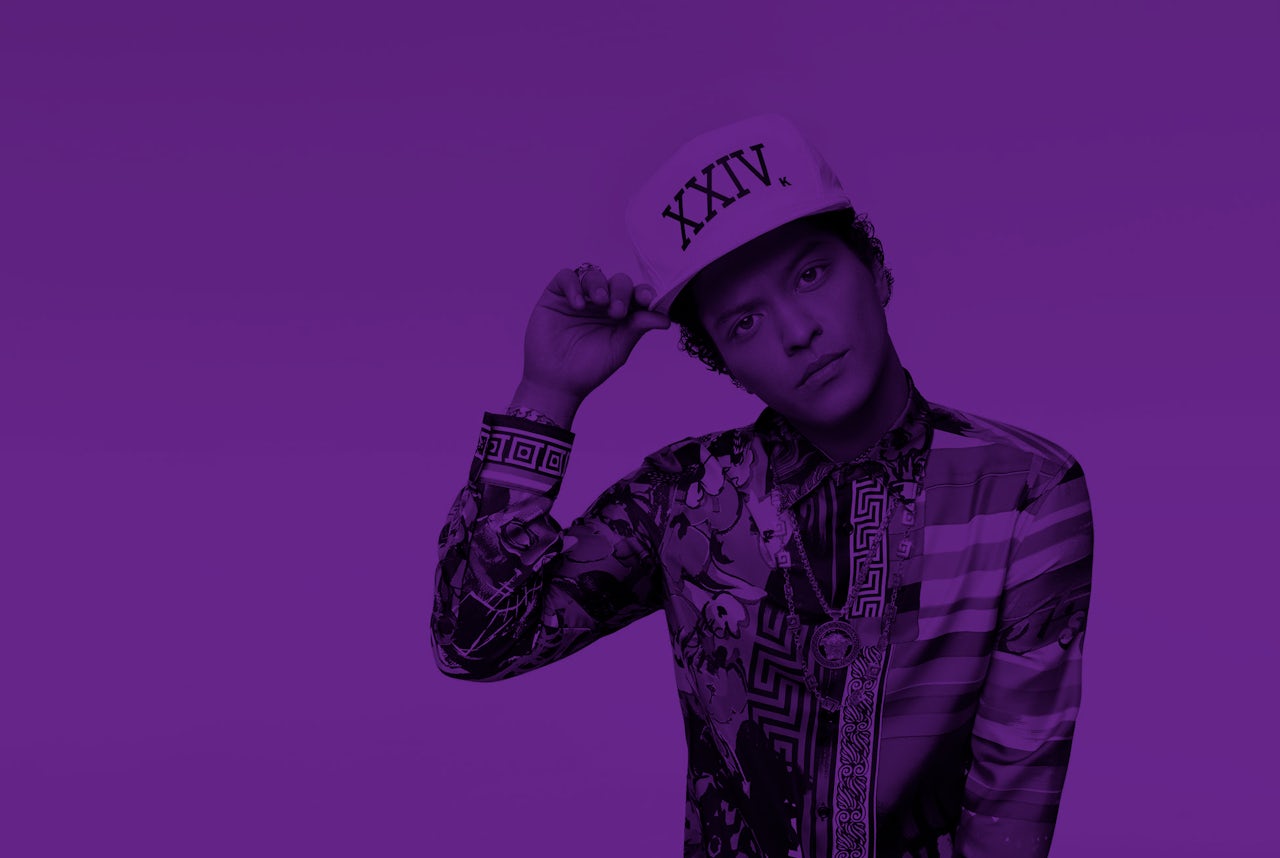I am someone who enjoys Bruno Mars. I’ve never paid for a Bruno Mars album, but I have listened to “24k Magic” on loop for nearly 45 minutes more than once. I’ve never shelled out money to see Bruno Mars live, but I have spent the better part of a day trying to learn the choreography to “Uptown Funk.” And I can’t say I’m very familiar with his pre-2014 discography, but if Mars were running for Senate I wouldn’t immediately rule him out for my vote — the new standard of public trust in celebrities. It’s safe to say were I to see Bruno Mars in real life I would react exactly the way the singer did when he happened upon Fall Out Boy’s Pete Wentz.
For people who still believe in the relevance of the Grammys, Mars’s six wins last night solidified his status as a pop music institution. Whereas he could have easily gone the way of pop music flame out — which is what happened with late aughts mainstream breakout acts like B.o.B. and Flobots — Mars has built up critical and commercial success, as he has demonstrated his longevity.
When Mars returned to the Super Bowl halftime show in 2016, significantly fewer people took to Google to search for pages related to how badly he sucks.
Still, there is a dissonance to Mars’s place in public opinion. Even as he has proven his depth as an entertainer, there is an odd public ambivalence about him, leftover from the days when hating pop stars and decrying them as untalented was cool. It’s a hatred Mars encountered early in his career. The year after Mars first came to mainstream attention, he was name dropped in one of 2011’s most noteworthy and popular songs, “Yonkers” by Tyler, the Creator: “I’ll... stab Bruno Mars in his goddamn esophagus and won’t stop until the cops come in.” In 2013, in response to Mars’s winning Best Male Video and Best Choreography at that year’s MTV Video Music Awards, Kanye West told a crowd at the Barclay’s Center, “Bruno Mars won all the motherfucking awards and shit,” going on to imply that Mars was undeserving of the acclaim. (Two years later, West would tweet, “I also want to publicly apologize to Bruno Mars, I used to hate on him but I really respect what he does as an artist,” followed by an invitation for Mars to sing on a new song West produced.) The next year, Mars headlined the Super Bowl XLVIII halftime show, around which point the search terms “Bruno Mars sucks” and “Bruno Mars bad” reached an all-time high on Google. With every step of Mars’s early career, his achievements were dogged by a reputation that he was more manufactured pop idol than he was artist.
Mars’s more recent hits seem to have mitigated that reputation, somewhat. 2014’s “Uptown Funk,” an undeniably catchy song produced in collaboration with respected producer Mark Ronson, lent Mars credibility as not just a pop culture product, but an active architect of the moment. (The song earned the two a 2016 Grammy.) When Mars returned to the Super Bowl halftime show that year as a guest performer, significantly fewer people took to Google to search for pages related to how badly he sucks. Of the 11 Grammys Mars has currently won, 10 of them have been over the past four years. Saying you dislike “That’s What I Like” is enough to get you out of jury duty anywhere (I assume). And yet the image of Mars as an underdog, succeeding despite widespread doubt in his abilities, endures. Despite the fact that his latest album 24k Magic was certified double platinum in the U.S. last year, in December the New Yorker’s Amanda Petrusich wrote a piece called “Weirdly We Might Be Overlooking Bruno Mars”. In it, Petrusich chalks up Mars’s status among critics as “a curiously undervalued commodity” to the buoyancy of his public persona and artistic themes. In other words, how deep can an artist be when he smiles almost constantly and sings about how great life is?
Congrats Song Of The Year winner - @brunomars "That's What I Like" #GRAMMYspic.twitter.com/koW5KrBdh5
— Recording Academy (@RecordingAcad) January 29, 2018
His latest sweep at the Grammys should erase any lingering sense he’s somehow an underdog, even if people remain ambivalent about his existence. With his Album of the Year win over Kendrick Lamar, Mars is occupying the (relatively) unenviable position that Adele, Taylor Swift, and Beck have gotten before him. There’s no doubt Lamar would have been the most critically acceptable choice, but the Grammys have a reputation of stuffy, anti-hip-hop gatekeeping to uphold — and Mars, with his respectable songwriting, electric showmanship, and approachable personality, emerged as the most obvious consensus mainstream choice, accounting for how many parents are watching at home. Considering his rise to fame from a position of derision, this is no small accomplishment. But if the world is going to be ambivalent about you, the best way to prove yourself is to show up, and keep doing the work until you have the awards and sales to go along.
